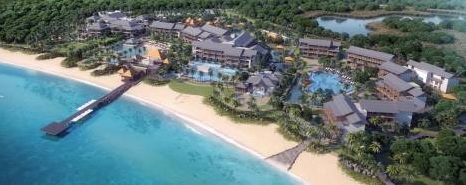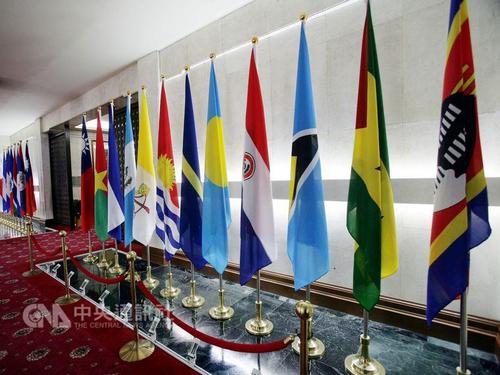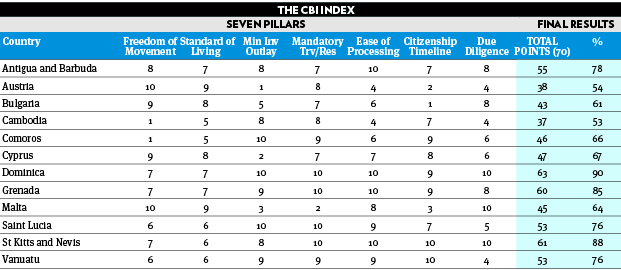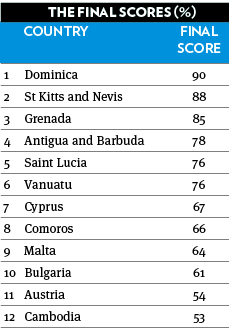





Cabrits Resort Kempinski Dominica
DUBAI, UAE — Leading regional resort developer Range Developments has announced the formal launch of its corporate and social responsibility (CSR) program. It will focus its efforts on four main areas:
1. Children
2. Family
3. Entrepreneurs
4. Communities
One of the foremost developers of luxury resorts in the Caribbean, including the Park Hyatt St Kitts and the Cabrits Resort Kempinski Dominica, has launched a dedicated section on its website to allow people to track progress and suggest ways to access support for projects.
Range Developments already has a proven track record of CSR in the countries that it operates. When Tropical Storm Erika hit Dominica, Range responded rapidly with a boatload of food, water and medical supplies. In St Kitts and Nevis it has sponsored summer camps for children as well as scholarships to schools.
Range Developments is determined to achieve considerable results with its comprehensive CSR strategy and aims to be on the forefront of all aspects of the CSR.
“With the launch of this initiative, we are here to say that Range Developments not only undertakes an environmentally responsible approach to the construction of our high-end resorts but also looks forward to closer links with the people of islands we operate in,” says Kamal Shehada, development director of Range Developments.
To ensure execution of the company’s vision, a dedicated CSR team has been established whose sole role it is to work with local communities to understand their main vulnerabilities and to identify the areas Range Developments can take the lead on.
‘I’m truly honoured to be part of such an impactful organization – one that invests in local communities and places the success and growth of its CSR as paramount and integral to its core values as a business,” says Kamila Ondrackova, CSR regional manager at Range Developments. “Many of our CSR initiatives bridge the gap between local talent and industry, creating fantastic opportunities for employment and economic growth. I look forward to supporting our local communities and am very excited for the future.”
Range Developments focuses on luxury developments that are well-designed, sustainable and desirable. Park Hyatt St Kitts, the company’s flagship project, set to open its doors in November 2017, won the prestigious Best New Hotel Construction and Design Caribbean award at The International Property Awards 2014-2015; and the coveted award of Best International New Hotel Construction and Design 2014-2015.
Announcement came during visit by president of Paraguay
By Matthew Strong,Taiwan News, Staff Writer
2017/07/12 15:48

TAIPEI (Taiwan News) – Beginning Wednesday, citizens from 11 official diplomatic allies in Latin America and the Caribbean will no longer need visas for a stay in Taiwan of up to 30 or 90 days, the Ministry of Foreign Affairs (MOFA) announced.
Earlier in the day, as President Horacio Cartes of Paraguay was visiting the island, MOFA already announced the measure benefiting nationals from the South American ally, but later expanded the offer to ten other allies. The same countries had already given the same privilege to Taiwanese visitors, reports said.
A maximum visa-free stay of up to 30 days in Taiwan became possible for citizens of Guatemala, Belize, the Dominican Republic, Saint Lucia, Saint Vincent and the Grenadines, and Saint Kitts and Nevis.
The 90-day stays without visa will be possible for nationals of Nicaragua, Honduras, El Salvador and Haiti as well as Paraguay, MOFA said.
In order to qualify for the visa waiver, the visitors needed to show a passport that was valid for at least six months, and a ticket and valid visa for their next destination after Taiwan. Customs also had the right to check whether the visitor had a problematic background, reports said.
Taiwan’s e-visa system which started on January 12, 2016 already included all the countries mentioned by MOFA Wednesday.
The ministry was hoping the new measures would boost tourism, trade and cultural links with the allies. Last month, Panama switched recognition to China, leaving Taiwan with only 20 official diplomatic allies and instilling fear of a domino effect.
BY CBI INDEX RESEARCH TEAM
The CBI Index’s key findings allow readers to either perform an overall review of the programmes, or evaluate the pillars individually

In providing both programme rankings and rankings by each of the seven pillars, the CBI Index affords readers the opportunity to either perform an overall review of the programmes, or complete a critical appraisal of the pillar that is of greatest consequence to them.
The following key findings emerge from the CBI Index rankings:
Pillar 1: Freedom of Movement
The countries that scored the highest in freedom of movement were the four European nations included in the CBI Index: Austria, Malta, Cyprus, and Bulgaria. Of these four, the highest-ranking were also members of the Schengen Area, which, for the most part, operates under a common visa policy.
FURTHER READING
A guide to global citizenship
The Caribbean followed Europe, having access to numerous key financial centres and having worked extensively to forge closer ties with other nations and to increase the number of destinations to which their citizens can travel visa-free. Antigua and Barbuda scored slightly higher than the other Caribbean islands.
Vanuatu ranked third-to-last, but significantly above Cambodia and Comoros, which received the lowest possible score under this section. Cambodia and Comoros received low scores both because of their poor overall ability to offer citizens visa-free travel, and because they lack the adequate travel treaties to ensure their citizens can easily access today’s prime business centres.
Pillar 2: Standard of Living
Standard of living saw Europe receive the highest scores, with Austria and Malta both topping the rankings. Austria obtained the best results in all sub-indicators with the exception of real GDP growth, where, together with Dominica and Saint Lucia, it was awarded the lowest mark. It is worth noting that Dominica’s GDP was affected by the horrific Storm Erika, which set back the country’s economic growth for 2016. It is no surprise that there are staggering growth rates seen from emerging markets such as Cambodia and Vanuatu.
The life expectancy sub-indicator revealed that, but for Austria, the longest lives can be enjoyed on the Mediterranean Sea. Close behind in second was Dominica – a lush island known for its abundant nature, spiritual atmosphere, and reliance on clean energy sources.
Expected years of schooling, another sub-indicator for a country’s standard of living, saw Austria and Grenada obtain the top scores. Living in a country with more than 30 public and private universities, it should come as no shock that young Austrian men and women remain in education for long periods of time. Less well-known is Grenada’s devotion to education, which has also led to it receiving international praise for its St George’s University – a leading medical and veterinary school.
Overall for this pillar, Antigua and Barbuda, Dominica, and Grenada placed best out of the Caribbean – a region that, on the whole, ranked just below Europe. Island-nation Vanuatu equalled Saint Lucia and St Kitts and Nevis, while Cambodia and Comoros received the lowest scores. Comoros was especially penalised by its results in sub-indicators such as life expectancy and gross national income (GNI). Cambodia was listed as the nation least dedicated to the freedom of its people, shedding light on its inability to uphold political and civil rights.
Perhaps unexpectedly, Cambodia was among the highest-ranking nations under the relative safety sub-indicator, which measures intentional homicide rates. The country scored the same as Europe and Vanuatu, the latter of which is known to be one of the least dangerous destinations in Oceania.
Pillar 3: Minimum Investment Outlay
Offering the most affordable option for second citizenship, Comoros received its highest ranking in this pillar – which also saw Dominica and Saint Lucia top the list. Vanuatu and Grenada were close seconds, both offering citizenship to single applicants for less than or equal to $200,000. Austria received the lowest ranking, offering citizenship for over forty times that amount.
Cyprus and Malta both obtained low scores, themselves extending citizenship for more than $2m and $1.2m respectively. Bulgaria ranked below Antigua and Barbuda and St Kitts and Nevis, but is the most affordable programme in Europe.
Pillar 4: Mandatory Travel or Residence
Dominica, Grenada, Saint Lucia, and St Kitts and Nevis achieved full scores under this pillar, as none of them require applicants to travel to or reside within their territory at any time prior to or after receiving citizenship. Indeed, these four jurisdictions rely on their stringent due diligence procedures to obviate any need to meet the applicant in person. It is important to mention, however, that these countries are famed for being welcoming, and applicants are invited to spend time visiting the countries whenever possible.
A high score was given to Comoros and Vanuatu, whose travel requirements can be waived by the payment of an additional fee. Austria, Cambodia, Antigua and Barbuda, Bulgaria, and Cyprus also received creditable scores.
Significantly below all other countries came Malta, whose more complex physical residence requirements placed it at the bottom of the scoring scale. Malta’s ‘genuine link’ test only provides some flexibility to how an individual can demonstrate residence on the island.
Pillar 5: Citizenship Timeline
St Kitts and Nevis, the sole nation to offer both a secure and an efficient timeframe for application processing, ranked best together with Vanuatu, which promises citizenship in around one month. High marks were awarded to Comoros, Dominica, and Grenada – whose average times were slightly less than those for Cyprus, Antigua and Barbuda, Cambodia, and Saint Lucia. In normal circumstances, these seven countries all offer processing times between more than one and less than five months.
Malta and Austria each received very low scores due to their protracted processing procedures, although it was Bulgaria that scored the lowest, as citizenship of this nation can only be obtained within three to five years, depending on whether the applicant chooses the more expensive fast-track route.
Pillar 6: Ease of Processing
The Caribbean was awarded the highest number of points for its ability to offer applicants streamlined and clear procedures to apply for citizenship. This reflects two important points regarding the region. Firstly, the requirements imposed on applicants in the Caribbean each follow the same model, and secondly, these nations have all committed to making their procedures transparent.
Vanuatu attained the same result as Saint Lucia, receiving equal points for all sub-indicators. Both performed weakly when evaluated for their ability to deliver on the promise of citizenship. Saint Lucia, for example, lost points following claims that all citizenships received under the December 2016 amendments to their Citizenship by Investment Programme (which came into force on January 1, 2017) would be reviewed and may be revoked should the applicant fail to make additional disclosures, payments, and filings.
Malta and Cyprus each scored below Vanuatu and Saint Lucia, dropping in the rankings because they leave no alternative to the applicant other than the purchase or rental of real estate – property transactions that inevitably come with hefty paperwork and enhanced due diligence on the property investment. While offering real estate investment under their citizenship programmes, the jurisdictions of the Caribbean do not make the purchase or rental of real estate mandatory.
With its requirement to acquire a bond portfolio, Bulgaria also failed to rank well. Lack of support from official government sources put Comoros, Austria, and Cambodia at a strong disadvantage. Enforcement of tests, previous business experience prerequisites, and compulsory interviews also factored in these weak results.
Pillar 7: Due Diligence
Dominica, Malta, and St Kitts and Nevis scored equally to take first place, owing to their unique data collection and due diligence features. Generally, the Caribbean scored remarkably well – as did Bulgaria, thanks, among other things, to its thorough questioning of applicant information.
Comoros and Cyprus obtained average scores, while Austria, Cambodia, and Vanuatu each received the lowest scores attained under this pillar. Despite its high investment threshold, Austria falls short of many other nations with respect to the level of due diligence it performs on its applicants, especially when exploring the history and source of the applicant’s funds.

Final Scores: The Best Programmes
Considering the stability and longevity of the programmes in the Caribbean, it is no surprise that the Caribbean jurisdictions ranked in the CBI Index’s top five positions, with Dominica – home to one of the longest-running citizenship by investment programmes, and known for its speedy procedures and affordable entry thresholds – attaining the highest ranking.
This echoes current trends in the economic citizenship market, which have seen Dominica’s popularity grow in recent years. St Kitts and Nevis took second place due to its reputation for integrity and trust but scored slightly lower due to a higher investment threshold. Grenada, a relatively new programme relaunched in 2013, emerged from an unstable first year to become one of today’s most interesting citizenship by investment options, particularly following the implementation of reforms in 2015.
Antigua and Barbuda and Saint Lucia, coming fourth and fifth respectively, completed the picture of a citizenship by investment arena dominated by the Caribbean.
Vanuatu, perhaps surprisingly for a less-known programme, ranked fifth together with Saint Lucia, having obtained consistently high scores under all the pillars. Cyprus received the best score out of any European nation, distinguishing itself for its attractive travel and residence requirements. Comoros finished in eighth position, bolstered by its inexpensive investment requirements, rapid application turnarounds, and minimal travel and residence requirements – but damaged by its comparative inability to provide citizens with sufficient freedom of movement and a tolerable standard of living.
Malta, together with Austria, attained the highest scores in freedom of movement and standard of living, as well as achieved the highest score, together with Dominica and St Kitts and Nevis, for due diligence. Having received a commendable score for ease of processing, Malta was however among the lowest-scoring nations for all other pillars.
Bulgaria, the country to come 10th in the CBI Index, was especially harmed by the length of its citizenship routes and costly investment requirements. Austria is predictably one of today’s least sought-after citizenship by investment programmes: enticing applicants with the promise of life in a prosperous European nation, but offering an abstruse programme known for its expensive and lengthy procedures.
Cambodia, the lowest-ranking programme, was consistently hovering at the end of the spectrum, except in the case of investment thresholds, travel and residence requirements, and citizenship timeline.